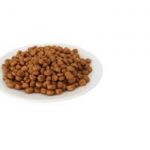Thirty years ago, veterinarians recognized deficiency of an amino acid (taurine) as the most common cause of dilated cardiomyopathy in cats.
This is a specific type of heart disease where the where the muscle is stretched thin and hindering normal heart contractions.
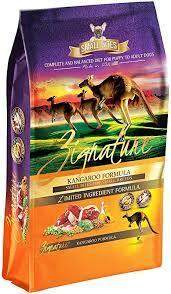
Unlike dogs, cats are unable to make their own taurine (just like people can’t make their own vitamin C) and must ingest it to stay healthy.
Taurine is plentiful in most animal tissues. Being carnivores, domestic, feral and wild cats that hunt for their food derive adequate taurine from their diet.
Thirty years ago, some commercial cat foods contained insufficient amounts of taurine causing dilated cardiomyopathy and other health issues.
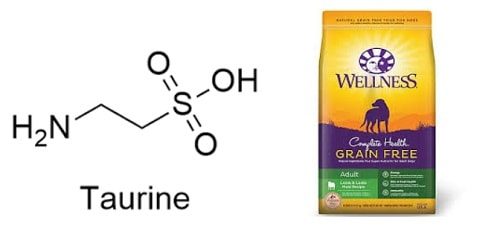
Also, some pet owners fed cats dog food not realizing the differences. In short, this discovery resulted in pet food companies adding more taurine to the foods they manufacture. Subsequently, taurine-associated dilated cardiomyopathy in cats has all-but disappeared.
It is occasionally diagnosed when cat owners feed unbalanced diets (e.g., boiled poultry, home cooked diets or vegetarian diets).
A few years later, certain breeds of dogs were found to also have dilated cardiomyopathy in association with taurine deficiency.
This was unexpected because dogs, unlike cats, are able to synthesize taurine from other sulfur-containing amino acids in their food.
Investigators suspected that these breeds were unable to synthesize taurine in amounts needed to replace losses. When these dogs were supplemented with high doses of taurine, many of the pets had their heart disease resolve.
Since that time, specific categories of diets have been sporadically implicated in heart disease. One group of Newfoundland’s that were fed a commercial lamb-and-rice diet developed taurine deficiency and reversible cardiomyopathy.
Other dogs have also been found to have taurine deficiency when fed similar lamb-and-rice diets. Occasionally, dogs fed vegan or vegetarian diets have been taurine deficient and suffering heart disease.
Most recently, Golden Retrievers have been identified as having a taurine-deficiency associated cardiomyopathy.
The Role of Grain-Free Diets and Dilated Cardiomyopathy
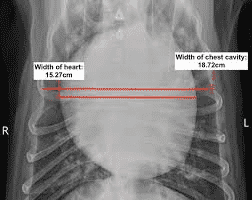
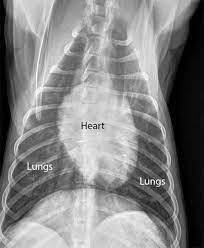
Over the last five years or so as fad grain-free diets have become popular, there have been hundreds of reports to the FDA about atypical dog breeds developing dilated cardiomyopathy.
The common link is they were all on grain-free, limited ingredient diets that use lentils and other legumes (peas) as the “base ingredient.”
There are currently many theories as to why this is happening, taurine deficiency or interference with taurine absorption or metabolism are among some of the suspected mechanisms of disease, but there are no definitive answers explaining how these diets cause the cardiomyopathy.
Are all “limited ingredient” or “grain free” diets at fault?

Some dogs are prescribed diets to diagnose and treat allergies (skin or gastrointestinal diseases). Such diets might include a limited number of uncommon ingredients, such as salmon, kangaroo, potatoes, peas, etc.
At this point, no therapeutic diets, manufactured by the major pet food manufacturers (Hills, Purina, Royal Canin), have been associated with current cases of diet-associated cardiomyopathy.
However, kangaroo-based diets have mostly been dropped from these major pet food manufacturers food line-up and anything that is limited ingredient with lentils or legumes should be avoided until we have more information.
Additionally, there is no medical or nutritional indication for feeding a grain free diet. For pets with suspected food allergies, rather than concentrating on removing the grain, the focus should be on selecting a novel protein.
They are chosen because the ingredients happen to be novel for the specific patient. Grain free is simply a marketing strategy and there is no proven benefit.
What should I do if my dog eats a grain-free legume based or other implicated diet?
First, check the ingredient label. If peas or lentils are the main ingredient (or main carbohydrate source), consider changing to a diet that contains grains.
Second, if you are reluctant to change the diet, consult your veterinarian about having a cardiac ultrasound (echocardiogram) to see if your dog has evidence of cardiomyopathy.
In addition to an echocardiogram, monitoring whole blood and oplasma levels of taurine can sometimes be helpful.
If your dog is found to be affected, even if it’s showing no clinical signs, the diet needs to be immediately changed and your dog supplemented with taurine until the echocardiogram shows normal size and contractility.
This can take 6-9 months. In some cases, reversal may not occur. Most nutritionists recommend using the WSAVA guidelines for selection of commercial diets.
This is a group that makes recommendations on a range of veterinary health issues. The WSAVA guidelines are available online to the public.
Third, if you have a dog that is “at risk” for taurine deficiency (American Cocker Spaniel, Golden Retriever, Newfoundland, Dalmatian) and eating an implicated diet, have the blood taurine levels checked.
Measure both whole blood and plasma collected at the same time to enable the most accurate interpretation of your dog’s taurine status.
If those are low, determine if the dog has cardiomyopathy with a cardiac ultrasound, change the diet, and supplement taurine as directed by your veterinarian. Please note, affected dogs may have normal taurine levels in the blood as this is an amino acid released in the heart muscle.
While low levels of taurine in the blood is diagnostic for taurine deficiency, having normal levels does not mean your dog is okay.
Your veterinarian might suggest measuring taurine in other breeds as well. The more data collected, the more likely researchers will be able to resolve whether taurine deficiency plays a primary or secondary role in causing this diet-associated cardiomyopathy.
Your veterinarian or veterinary cardiologist is the one best able to advise you about the most appropriate course of action for your dog.
What about cats?

A few cat cases have been reported to the FDA, but the numbers are too small to say anything definitive. This appears to be primarily a dog problem. Please feed a non-grain free diet to cats, designed for cats to ensure they receive adequate dietary taurine.
